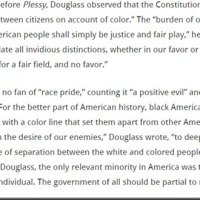This from a blog focusing on monetary economics!
From Bill Woolsey. I’m not sure about the end of this one way or the other but its an interesting thought:
“My vision of the real world is that it is rife with monopoly, monopsony, and all sorts of price and wage discrimination. But, this is in the context of lots of competition. Competition is “imperfect,” but the gains and losses in efficiency are small and fleeting in world of creative destruction.
Still, I wouldn’t be surprised if the monopsony effect resulted in some firms hiring more workers due to a higher minimum wage. Unfortunately, that same increase in the minimum wage will push the wage above the marginal revenue product of labor for other firms so that they hire fewer workers.
The notion that government operates like an omniscient benevolent despot and could and would set a wage in each and every market so that competitive equilibrium is approximated is completely unrealistic. I think a more plausible starting place would be politicians trading off the loss of employment versus the increase in wage income. That would suggest that minimum wages would be set above the marginal revenue product of the current level of employment. Of course, reduced profits to firms, very significant politically relevant short run, and even higher prices to those purchasing the products might relevant.”Our estimates are pooled across labor markets and firms. A zero effect really just means we’ve got about as many going one way as the other.
The wage discrimination point in the post is important to consider too, although its relative prevalence is obviously an empirical question (I’m guessing these places for the minimum wage discussion have take-it-or-leave it wage structures).
Great sentences on the minimum wage
dkuehn
Sun, 24 Feb 2013 18:40:00 GMT
Even better though I think in the Woolsey piece is this:
With perfect wage discrimination, or just sufficient wage discrimination to exhaust all the gains from trade, a minimum wage will not increase employment. On the other hand, as long as it is no higher than the marginal revenue product of labor, it would raise the wages of all of the workers being paid wages less than the marginal revenue product of labor without there being any decrease in employment.
A minimum wage (or a union) could increase the wage and not reduce the quantity of labor employed. The only effect would be increase the wage of the least paid workers. I think it’s a revelation. Also, I tinink wage discrimination is more the norm than the exception. Otherwise, why are employees encouraged to not tell others what they are paid?





